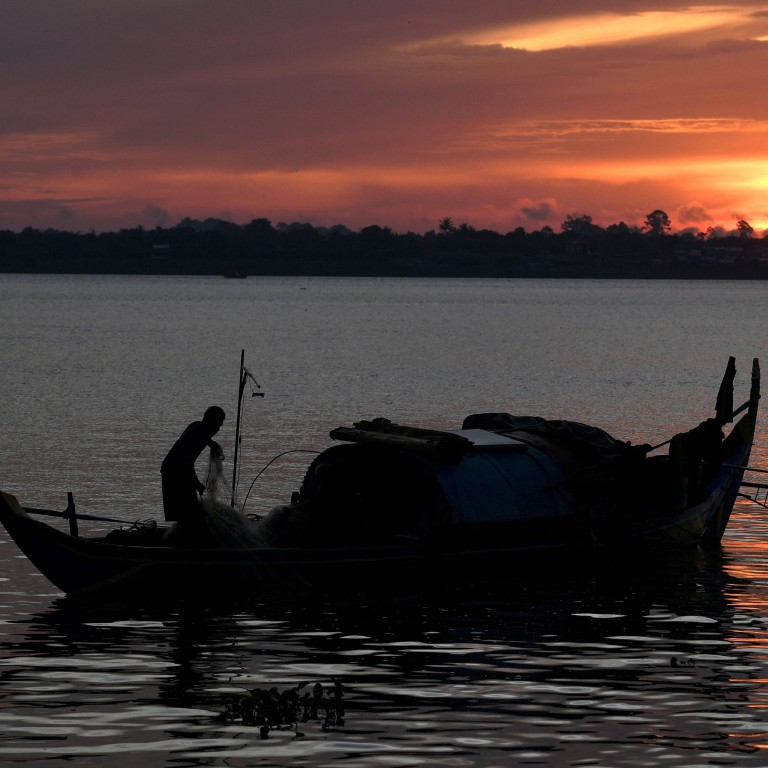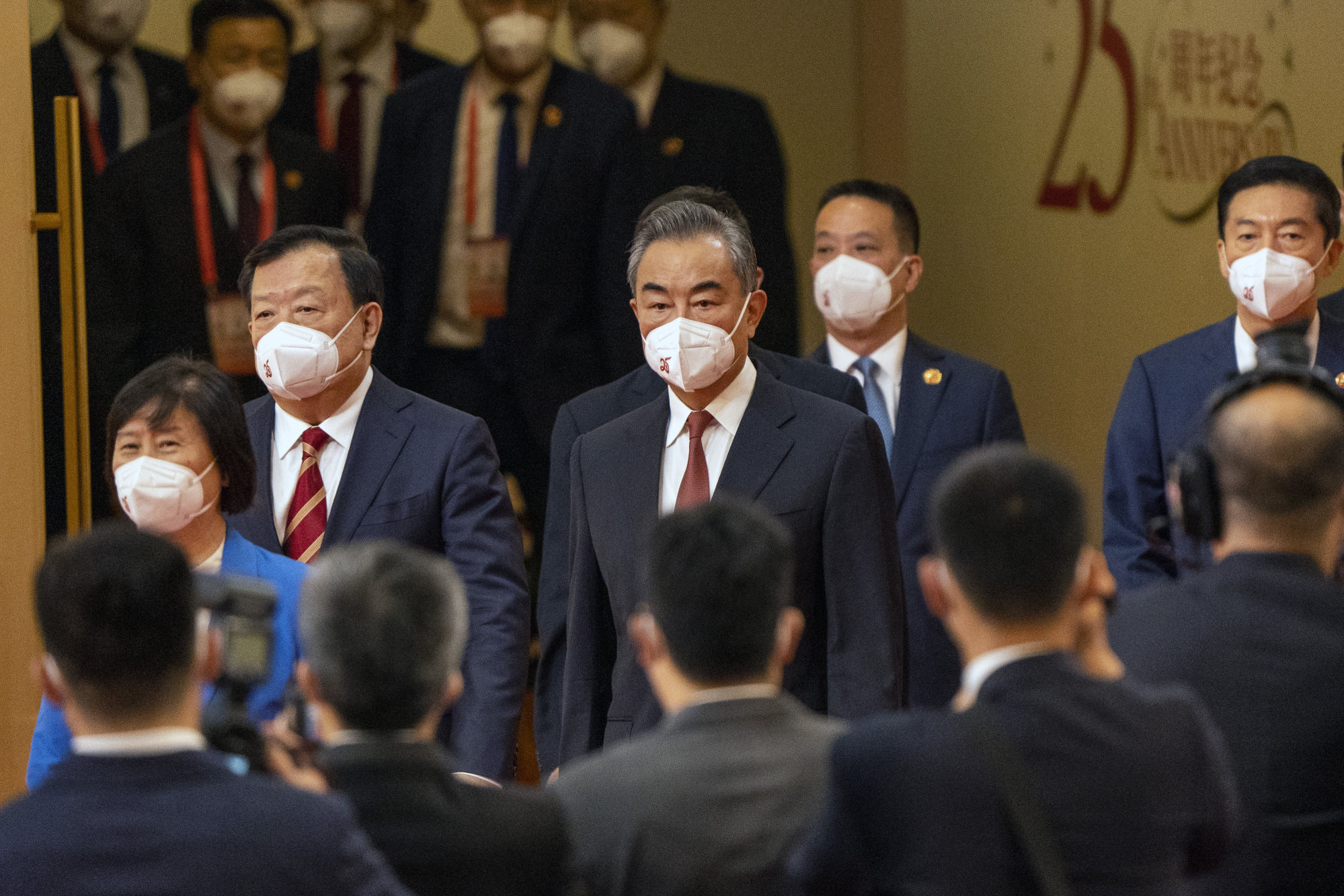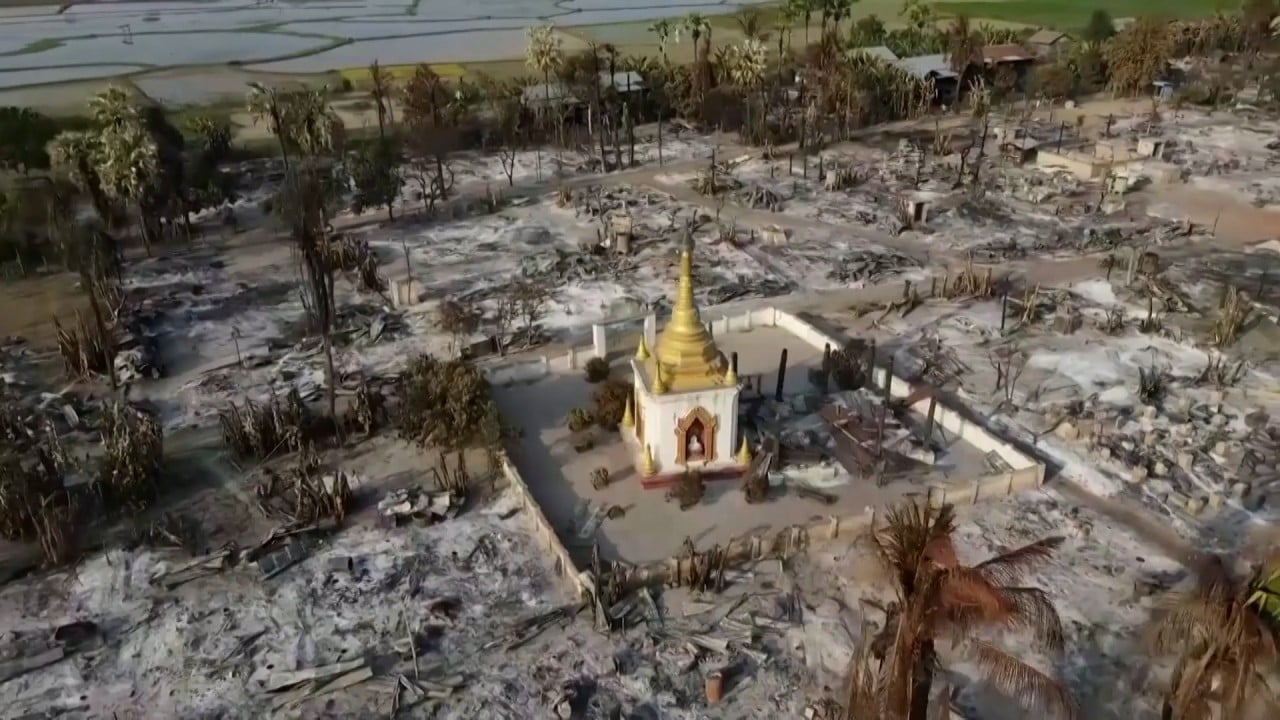
Chinese Foreign Minister Wang Yi seeks to bolster Beijing’s position in Southeast Asia on latest tour of region
- The visit will start in Myanmar, which Wang will be the highest-ranking Chinese official to visit since last year’s coup
- The tour is seen as Beijing’s latest response to counter Joe Biden’s Indo-Pacific Framework, which seeks to counter China’s influence in the region
US surpasses China to become India’s biggest trading partner
Wang will then visit Thailand, where the Apec summit will be held in November, the Philippines and Malaysia, before attending a G20 meeting of foreign ministers in Indonesia, according to the Chinese foreign ministry.
Zhao Lijian, a spokesman for the ministry described Southeast Asian nations as “important partners that share vast common interests and seek common development” with China, adding that Wang’s trip came at a critical time when the world was “fraught with turbulence and change”.
He said Beijing hoped to step up strategic communication, “work for high-quality Belt and Road cooperation”, “boost economic recovery and uphold peace and tranquillity”.
It will be Wang’s first visit to the region since US President Joe Biden held a summit with leaders from 10 Southeast Asian nations and the launch of his Indo-Pacific Framework to counter China’s influence.
Over the past few weeks, Wang has been busy travelling to the South Pacific and Central Asia to rally support for Beijing amid growing concerns that the Biden administration’s charm offensive in the region has worsened China’s position.
Zhang Mingliang, a Southeast Asian affairs specialist from Jinan University in Guangzhou, said Wang’s trip was “a comprehensive, calculated move” to try to enlist support from all the countries in the region.
“It is good to see [Wang] has moderated his approach, kept a low profile and tried to use diplomacy to seek understanding and support from neighbouring countries,” he said.
He noted that as China’s ties with the US and its allies continue to deteriorate, Beijing has toned down its diplomatic assertiveness and become increasingly tolerant towards Southeast Asian countries in recent months.
“But I don’t think it’s realistic to have too much expectation for the trip, which is more about form than substance,” Zhang said.
Wang last visited Myanmar in January 2021, just weeks before the military junta staged a coup against the civilian government led by Aung San Suu Kyi.
In the wake of the Western sanctions, China has become a major supporter and arms supplier for the junta, with Wang promising in April that Beijing would help safeguard Myanmar’s sovereignty, independence and territorial integrity “no matter how the situation changes”.
China-backed Myanmar rebels call on junta for peace talks
But Beijing’s stance has been widely condemned by armed resistance groups in Myanmar, which have launched attacks on Chinese projects in the country.
Manalo, who had served as Manila’s ambassador to the United Nations and other senior diplomatic posts, is believed to be a moderate who will support Marcos’s balancing act between the US and China.
“I think China’s ties with the Philippines and most other regional countries will be steady in the near future. Despite the recent US efforts and commitments, Washington is distracted by the Ukraine crisis and its priority is to secure stability in the Indo-Pacific, especially over the Taiwan Strait,” Xu Liping, from the Chinese Academy of Social Sciences, said.

While Southeast Asian nations are reluctant to choose sides in the US-China rivalry, there remains widespread scepticism and distrust towards Beijing in the region.
According to a survey of regional sentiment by ISEAS-Yusof Ishak Institute in Singapore earlier this year, China was the least trusted country. When asked to chose, 43 per cent of respondents picked China, compared with 57 per cent for the US.


